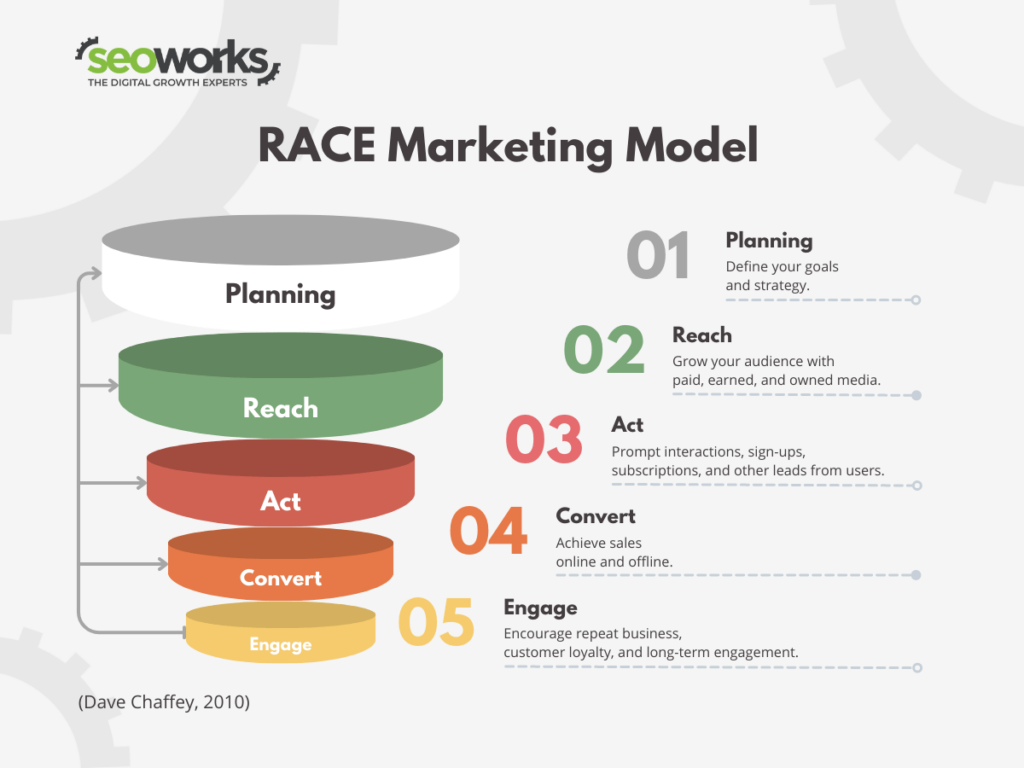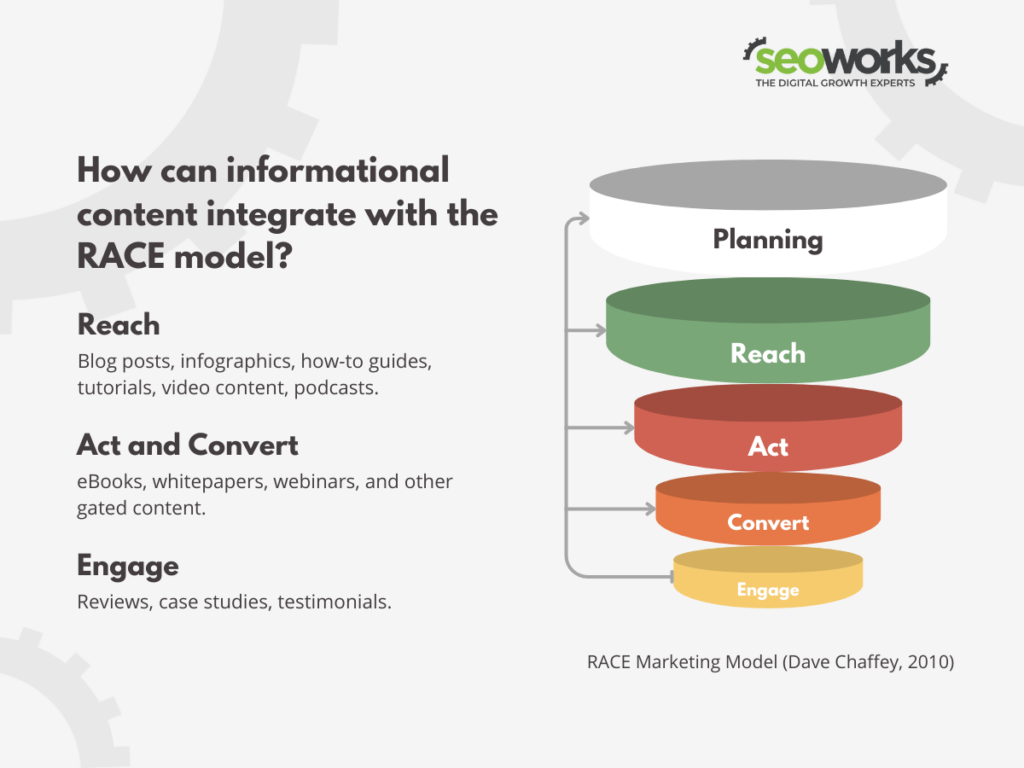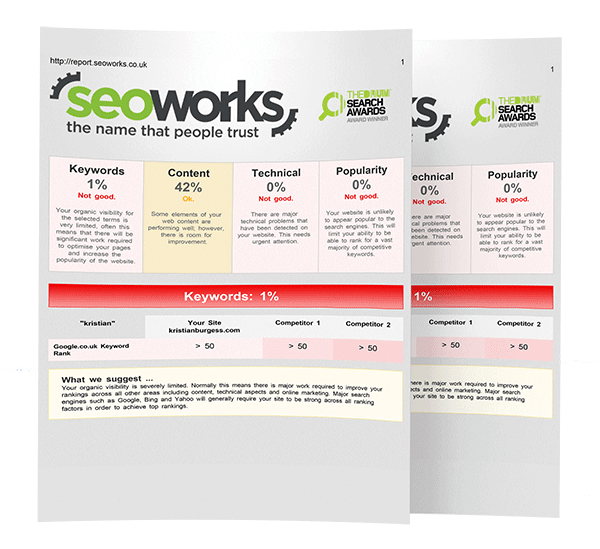Why Informational Content Is Key to Effective Digital Strategy
In the ever-evolving landscape of digital marketing and SEO, there is one common trap that businesses fall into online: neglecting the power of informational content.
The primary goal of most websites is to either sell a product or service. Naturally, to improve revenue and drive conversions, it’s sensible to assume that prioritising landing pages that satisfy conversion-focused search intent should be the focal point of the SEO strategy, right?
What about commercial content, like “best of” comparisons, “Vs” posts, and hands-on reviews? While important for website performance and conversion-rate optimisation, leaning solely on commercial and transactional content can only get you so far.
This approach to content strategy overlooks a critical aspect of online consumer behaviour. Before a user “adds to basket” or submits an enquiry form, most will seek information, useful insights, and other possible solutions to their problems before making a purchasing decision. Navigating this part of the customer journey and driving website traffic from the top of the marketing funnel is where informational content comes into play.
In this article, we will explore why informational content should be an essential part of any successful website and overall digital marketing strategy. Let’s jump straight in!
What is informational content?
In digital marketing, informational content is the material produced by an organisation used to inform, educate, and engage consumers in a specific industry/niche. The aim of this content is to provide valuable insights, help to solve problems faced by the user, and answer questions. Informational content plays a significant role in content marketing.
Informational content takes on a variety of different forms including long form blog posts, infographics, videos, and more. The aim is to provide content that is attention-grabbing and relevant to the target audience, whilst addressing any questions or pain points that the user may have about a given topic.
How is informational content different from promotional content?
Informational content is different from promotional content in that its goal is to offer solutions to problems faced by the user and answer their questions, rather than to directly advertise a brand or business.
Informational search intent
In relation to SEO, informational content is created to address user queries with informational search intent. A study conducted by The Pennsylvania State University in 2007 found that over 80% of all web searches have informational search intent.
Whilst this percentage is likely to be a little lower nowadays given the rise of Ecommerce, if you aren’t producing informational content for your website, you are potentially missing out on a significant amount of traffic. Diversifying the type of keywords you are targeting increases the chances of your website being discovered!
The importance of informational content to digital marketing success
When discussing the importance of informational content to digital marketing success, it’s useful to explore how different types of content can integrate into common marketing planning frameworks, such as the RACE model.
The RACE Marketing Model
The RACE marketing planning model is structured to help businesses create digital marketing plans that take into account the customer journey. It serves to segment marketing activities into each stage of the funnel, providing a visualisation of how the organisation plans to build brand awareness, engage potential customers, convert audiences into sales, encourage repeat business, and improve long-term customer engagement.

Creating a marketing plan around a framework like the RACE model can be critical to digital success for a variety of reasons:
- Comprehensive strategy. The RACE model ensures all essential aspects of a successful digital marketing campaign are covered, from initial audience reach to relationship building and fostering loyalty among customers.
- Structured and targeted. This framework encourages businesses to think carefully about the tactics they use at each phase of the customer journey, preventing disjointed efforts to achieve marketing goals.
- Data-driven optimisation. The cyclical nature of the model emphasises the need to measure the success of different tactics by monitoring and analysing key metrics. This allows marketers to adjust and refine strategies over time for better results.
Here’s an example of how informational content can integrate into the RACE model, and be used as a tactic to help guide your target audience down the funnel:

Depending on your industry and the objectives of your business, different types of informational content can span across multiple phases of the RACE framework.
For instance, by adopting a strategic approach, websites can craft compelling blog content that directly addresses the pain points encountered by their target audience. By seamlessly weaving in solutions that are closely tied to their own products or services, this type of content not only has the potential to reach and engage new customers, but also prompts them to act and guides users down the funnel to a conversion point. This idea is a common practice for affiliate marketing websites, but can be applied to almost any other brochure or Ecommerce site.
To illustrate this, let’s consider an Ecommerce site that sells sports equipment, whose aim is to improve sales of football gear in Q4. As part of their overall digital marketing strategy, they could produce a blog post titled something like, “Tips for Playing Football in the Winter”. The primary goal here would be to thoughtfully address pain points such as ‘slipping on icey pitches’, ‘staying warm whilst training’, among others.
Whilst providing general advice and valuable tips, the writer could also link to a variety of their own relevant products that cater to the needs of the reader, such as football boots, socks, insulating thermals, coats, snoods, and more.
This type of informational content not only offers actionable solutions to the challenges discussed, but also organically points users toward making informed purchasing decisions on the site itself, leading to more conversions, and a growth in sales and revenue for the business.
This approach has increasingly been applied to video content, thanks in part to the growing popularity of platforms like TikTok and TikTok Shop. These platforms give businesses the opportunity to reach and engage thousands, if not millions, of users and present them with products the algorithm ensures they’re likely interested in.
Creating compelling video content to address user needs, desires, and pain points is a proven tactic to boost online sales, especially when you consider how easy these platforms have made it for customers to make a purchase.

The benefits of informational content to SEO
Effective digital marketing campaigns rely not only on the direct influence of informational content, but also on its ability to enhance the SEO performance of a business’ website. This is particularly common in the form of blog posts, where informational content plays a pivotal role in strengthening any overarching SEO strategy. Let’s take a look at some of the main positives that producing strong informational content has on SEO:
1. Authority & expertise
Writing strong informational content is a fantastic approach to establishing your website as the go-to authority in your industry or niche. Building topical authority helps search engines to understand your areas of expertise.
This not only ensures that your site aligns with Google’s E-E-A-T guidelines but also improves your chances of ranking for other semantically-related keywords, growing organic traffic, brand awareness and trust.
A great strategy for utilising informational content to build topical authority is by creating topic clusters. In short, topic clusters involve grouping related pieces of content together around one central theme. A “pillar page” is used to provide an overview of the topic whilst linking to more specific “cluster pages”, with the aim of comprehensively covering as much content around the topic as possible. Over time, this can help your website to become a trusted resource in the eyes of potential customers, and search engines.
2. Long-tail keywords
When creating informational content for an SEO campaign, blog posts are usually written to target long-tail keywords. As the name suggests, long-tail keywords are longer search queries and are highly specific. This means they are often less competitive than shorter more generic keywords, which in turn means they are easier to rank for. Whilst they have smaller search volumes, long-tail keywords can make up a large part of all searches happening around a certain topic, thus driving more organic traffic than expected.
This holds especially true when you consider the improvements in natural language processing and the increased use of voice search. Since the BERT algorithm update, Google has become much better at understanding the intent behind longer, more complex search terms. This has resulted in more successful conversational search queries as Google has improved its ability to serve people the content they are looking for.
Because of how specific long-tail keywords can be, they are often more closely aligned to the user’s search intent. This means that your content is more likely to meet the needs of the user, resulting in increased click-through rates and improved user engagement.
3. Internal Linking
Another SEO benefit of producing informational content is that it naturally encourages contextual internal linking between pieces of content, whether these are links to other semantically-related blog posts or to your main landing pages. As a fundamental aspect of building content clusters and establishing topical authority, internal links assist both users in navigating your site and search engines in discovering and understanding your content to a greater extent.
Internal links also serve to distribute link equity from the most authoritative pages on your site, starting with the homepage, which typically has the most backlinks. The more relevant internal links you incorporate into new blog posts, the more strength that will be transferred throughout the overall site structure. This will improve the chances of achieving higher rankings for all your content.
4. Link Acquisition
High-quality informational blog content is at the foundation of any solid link building strategy. When you publish valuable, well-researched, and novel content to your site, it becomes a resource for your target audience and other professionals within your industry. If your content is strong, it’s highly likely that other websites and content creators will link to your blog posts as a reference in their own work, or a way to provide additional information to their readers.
Maintaining an extensive catalogue of blog content also opens up a number of useful outreach opportunities for link building. Approaching and pitching to potential guest post hosts and other link partners becomes considerably more straightforward when you can showcase a collection of high-performing blog posts of your own that demonstrate your expertise and credibility. If you are lucky, you might even find that people come to you for a collaboration!
5. Continual traffic generation
One of the main objectives behind an SEO blog strategy is to generate a consistent and dependable source of traffic to the website through the use of evergreen content. In SEO, evergreen content refers to optimised blog content centred around topics that sustain a consistent search volume and retain their relevance over time. When evergreen content ranks well and receives regular updates, it has the potential to provide your site with a reliable stream of organic users that you can count on to engage and interact with your pages.
Final Takeaways
- Informational content can be a hugely impactful digital marketing tactic, helping businesses to cater to potential customers at each phase of the customer journey.
- As an essential part of any robust, well-rounded SEO strategy, informational content helps websites show authority and expertise within a niche, improve keyword rankings, grow backlinks, and reliably drive organic traffic.
- The most successful websites will utilise informational, commercial, and transactional content to satisfy the search intent of users at all stages of the funnel, adopting a comprehensive strategy.
However, creating informational content can take a lot of time and resources. Our team of SEO experts have a proven track record of utilising SEO best practices and cutting-edge creativity to develop the best possible content approaches for businesses.
Find out more about our SEO services here, or get in touch with our team here.

Ewan is an SEO Account Manager with a passion for all things digital marketing, experienced in both content strategy and technical SEO.

